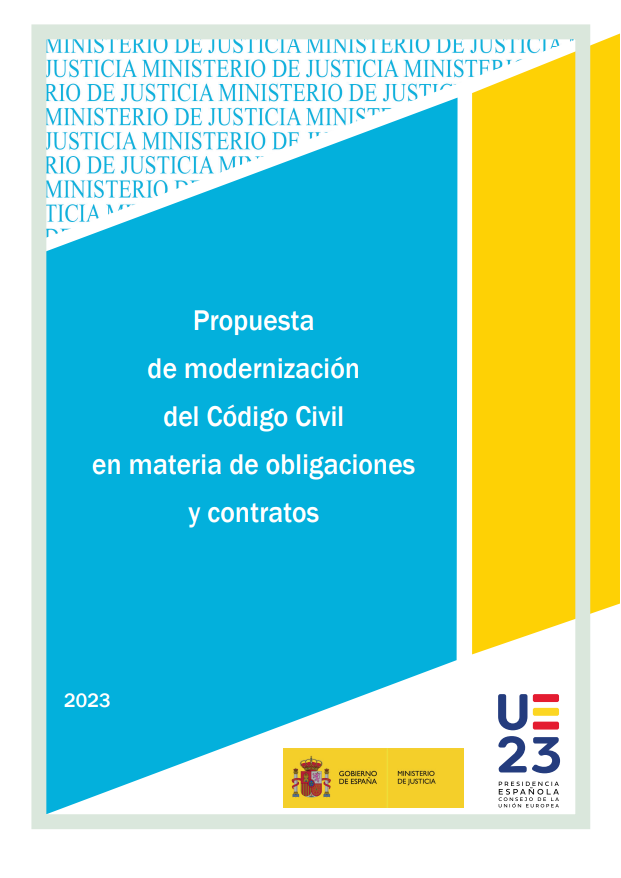[Ref. PID2022-138909NB-I00]
«La inaplazable modernización del derecho de obligaciones y contratos del Código civil español»
por Ministerio de Ciencia e Innovación Años: 2023-2026

The Project focuses on the essential modernisation of the Law of Obligations and Contracts of the Spanish Civil Code, in particular, of its respective general parts (Titles I and II of Book IV of the Civil Code).
It is not intended to be a theoretical lucubration based on the vagueness of a need that has long been felt and expressed by scientific doctrine. What we wish to undertake takes as its starting point a specific text: the one produced by the Subcommittee of the First Section of the General Codification Commission of the Spanish Ministry of Justice, and published on July 31st 2023, with the aim of updating the Proposal for the Reform of the Modernisation of the Spanish Civil Code, published by the Ministry of Justice in 2009.
The research proposal is based on an indisputable reality: the content of the Spanish Civil Code on obligations and contracts remains practically the same as it was on the day of its publication in 1889, being the only nineteenth-century European civil code that has not been updated; specifically, its Titles I and II are not adapted to the needs of current legal-economic traffic, to the requirements of market participants, nor to the goods and services that are currently traded (e.g. digital content); moreover, the Spanish Civil Code has not been modernised. The rules of inter-regional law are also obsolete and the scope of rules of private international law, which cover situations very different from those provided for in the Code, needs to be analysed. As a result, case law is constantly having to force the interpretation of the existing rules on the matters described.
This reality places us in a weak position when it comes to competing in the market of legal systems, since in this area the parties can, as a general rule, submit their legal relations to the law that is most convenient for them. The aforementioned discrepancy has been denounced by the Constitutional Court in its ruling on the appeal of unconstitutionality against certain articles of Book VI of the Civil Code of Catalonia (STC 132/19 of 13 November). Furthermore, some Autonomous Communities with civil competences have indeed reformed their own rules or even created ex novo legal rules on obligations and contracts, following the guidelines of modern contract law.
Finally, there is an absolute conviction in the academic and practical spheres of the need to change this state of affairs, promoting the update of the Civil Code on obligations and contracts, starting with the general theory and taking as an example recently updated European models, such as those of the Netherlands, Germany, France and, more recently, Belgium.
With the premises listed above, the main characteristic of this proposal, which distinguishes it from others of similar subject matter, is that the people who make up the research group are in the best conditions to undertake the research described. Firstly, because it is led by someone who has worked for years on the drafting of the aforementioned pre-legislative text, and secondly, because the research and work teams make up a large, perfectly integrated and consolidated group which, at its core, coincides with the IG De conflictu legum.
